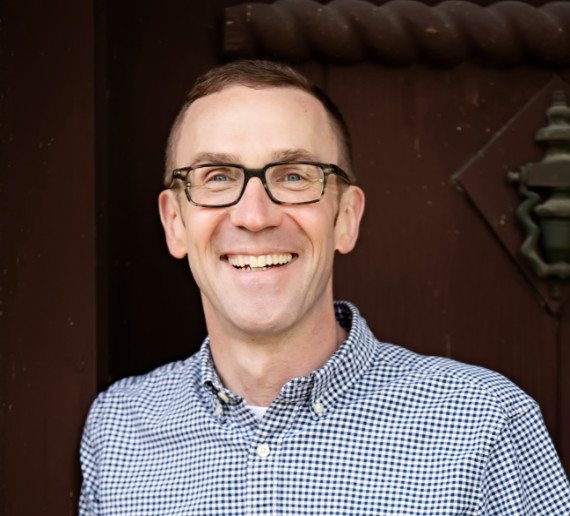Incoming Fall Faculty: Lee Wurm Joins Psychology Department

In this short interview series, we will introduce the Gonzaga community to the College of Arts & Sciences' incoming Fall 2020 faculty. This interview is with the Psychology department’s newest faculty member, Lee Wurm, Ph.D. We sat down with Lee to learn more about his background as an academic and to find out what he looks forward to the most at Gonzaga University.
What inspired you to pursue cognitive psychology? Was there an aha moment, or a culmination of events?
Gordon Legge, a professor at the University of Minnesota, was impressed with my coursework and asked me to join his lab. I loved the research, but I wanted to be a clinical psychologist, so I went to graduate school for that. Two years into the program, I realized my heart wasn't in it, so I returned to my roots in cognitive.
I've thought of Dr. Legge often over the years. It would be impossible to count the twists and turns that have led me to this place and time, but his reaching out was a significant early event.
Before moving to Spokane, you were at Wayne State University in Michigan - how has the transition from the Midwest to Northwest gone? How do you like Spokane?
The transition was challenging because of how much I love Detroit and the people of Wayne State. In February, I started a blog to give me a place to gather some of my thoughts about this, with occasional detours to other topics.
The pandemic means I am getting to know Spokane in slow motion. It has taken me a while to get used to the unrelenting sunshine, but the dry air is nice! The people have been amazing. They are incredibly friendly, generous, and helpful.
What courses will you be teaching at Gonzaga?
I have PSYC 101 (General Psychology) and two sections of PSYC 202 (Statistics For Psychology). Everywhere else I've ever been, students dread the statistics course. I don't know yet if that's part of the culture here, but I believe that helping students approach this material is something I'm good at. We will survive PSYC 202, and we might even have some fun!
What are you most looking forward to in the next year (professionally, personally, etc.)?
I'm looking forward to being part of a community that cares so much about service and justice. One of our learning objectives in PSYC 101 is to explain how psychology interprets and contributes to social justice. I am giving my students a lot of room to be creative on that, and I am excited to see what they'll do.
Your most recent publication explored some unusual and creative language use - what did you uncover in your research about this topic?
Wayne State student Adam Regalski and I noticed that people in an online forum used the number 3017 as a verb, as in "I need to 3017 that soap." The meaning seemed to be "to reduce a stockpile of something by using it exclusively until finished."
We searched the site's eight million posts for uses of the term. We could map its spread to different parts of speech and its shifts in meaning over six years. These processes happen all the time in human language use, but it was fascinating to see it unfold in a number.
Do you have any projects you're currently working on?
I'm interested in how words are represented in the mind. Language comprehension is effortless for human beings but incredibly complex (as our interactions with Siri and Alexa frequently show us). Theoretical models of this process include a vast and growing number of explanatory variables.
Chris Westbury (University of Alberta) and I wonder whether we're coming at the problem incorrectly. We're doing computational analyses of several billion words of text, examining, in particular, the probabilities of words appearing near other words. A simple model incorporating this information looks promising; it can explain language comprehension performance just as well as more complex models that include the ever-growing laundry list of variables.
It seems that, to some extent, words can be known by the company they keep.
